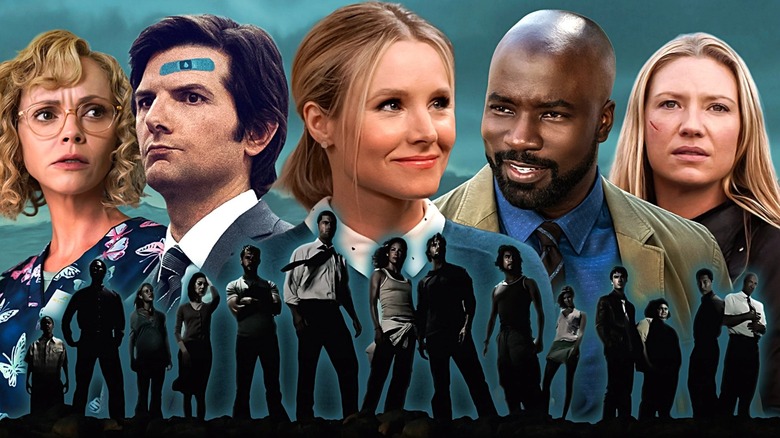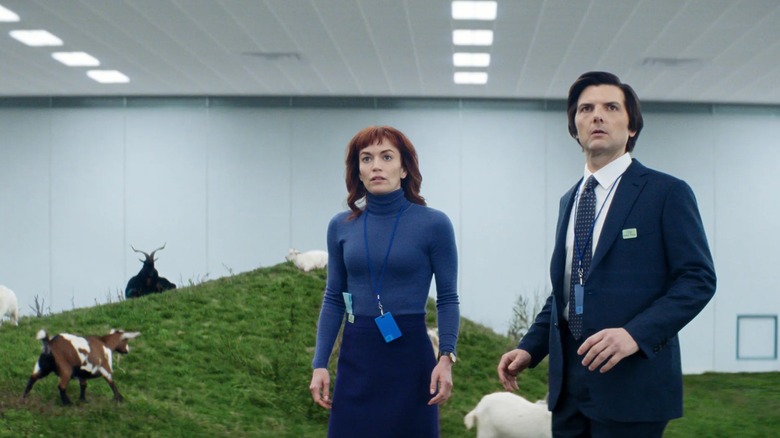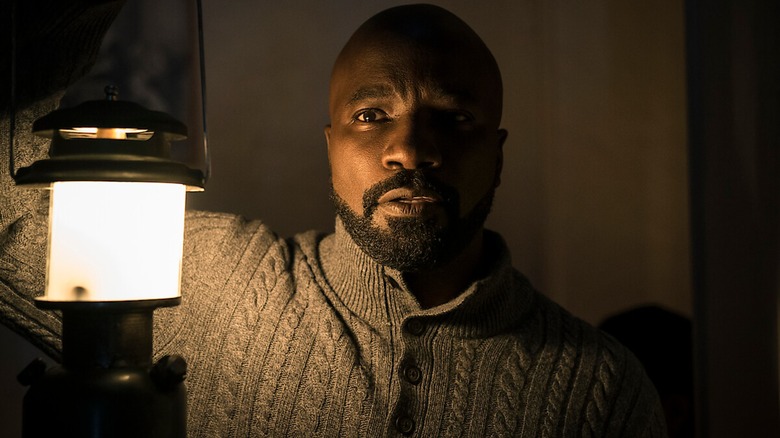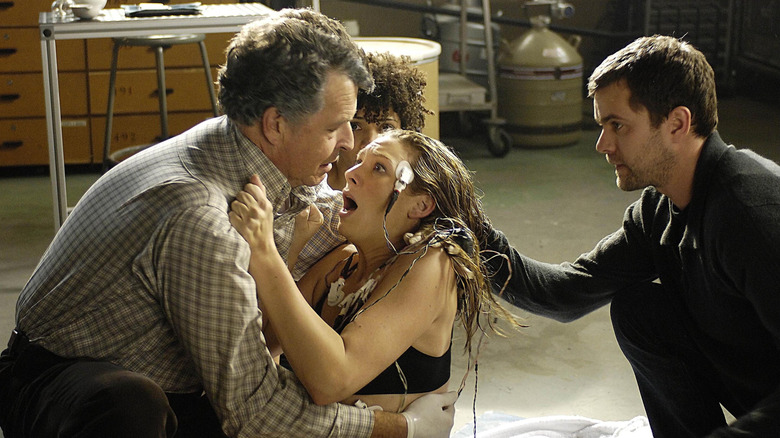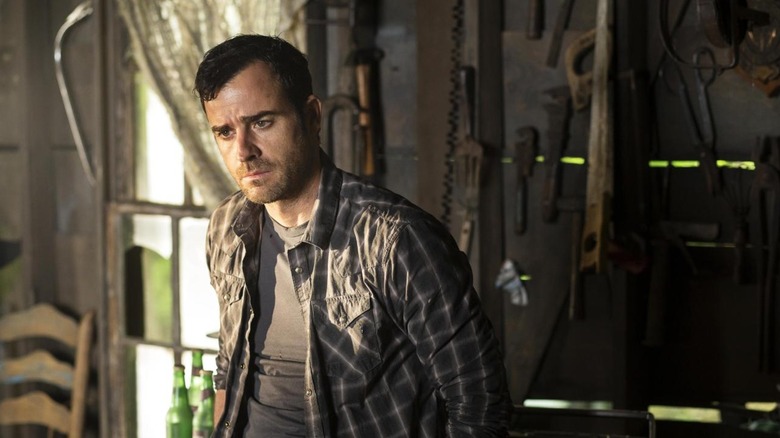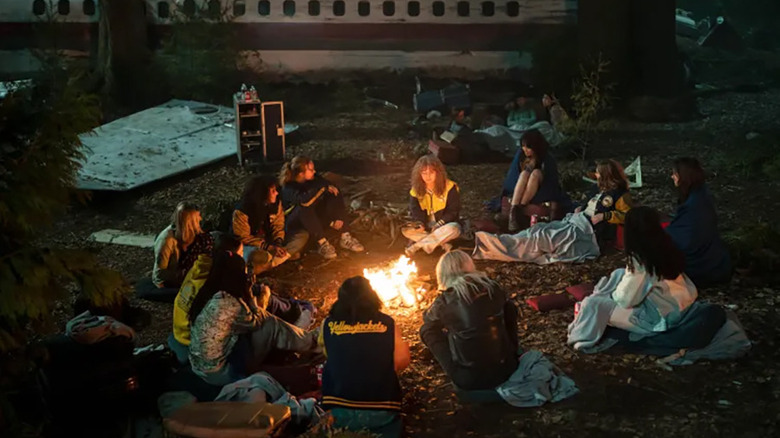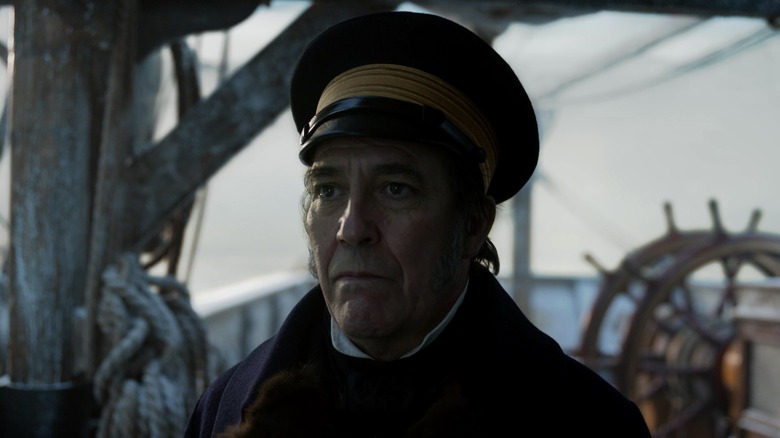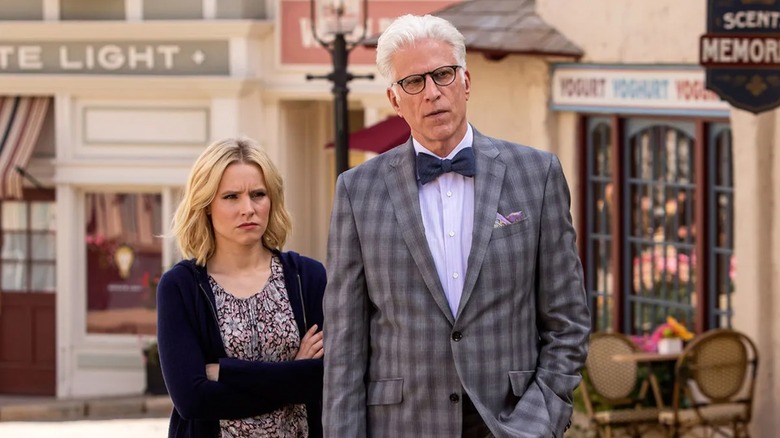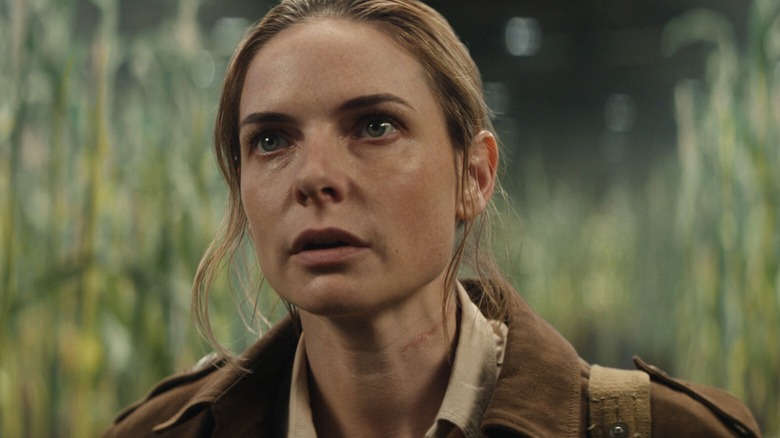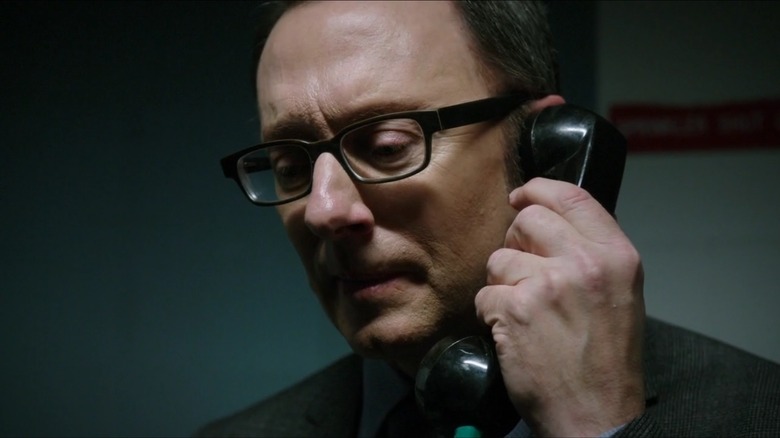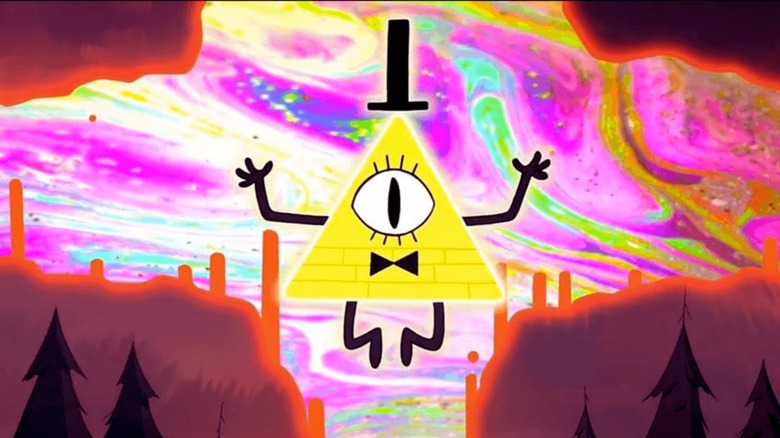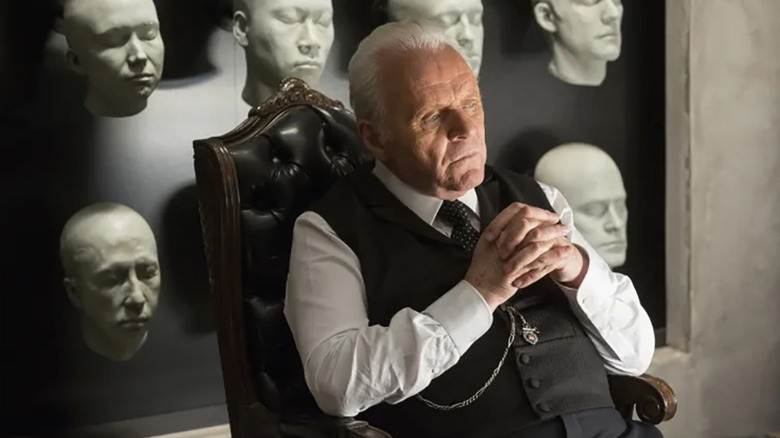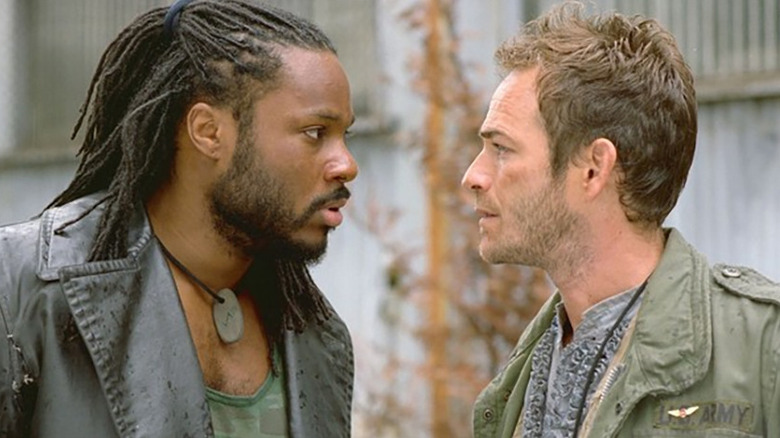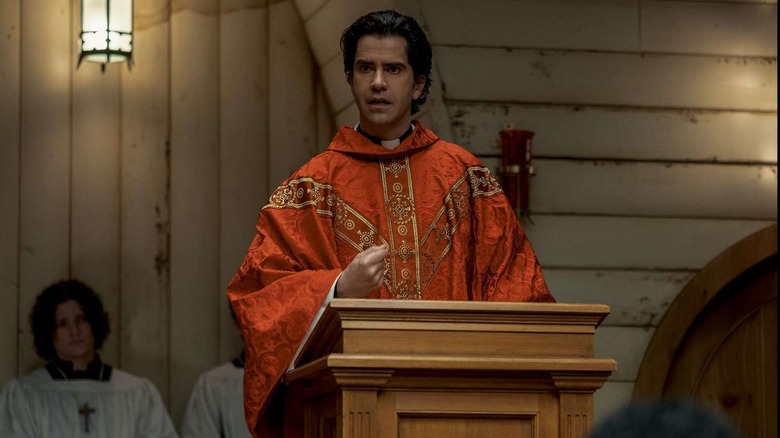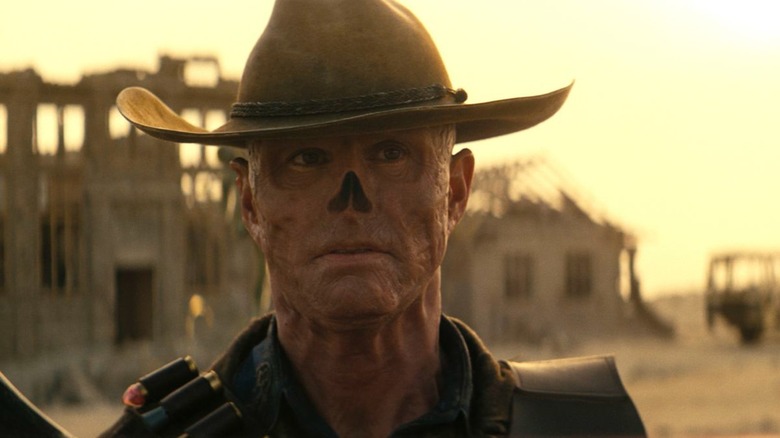15 Best TV Shows Like Lost
We may receive a commission on purchases made from links.
It was the fall of 2004, and there was nothing like "LOST." While narrative arcs had finally become part of television, helped by sci-fi predecessors like "Babylon 5" and "Star Trek: Deep Space Nine," "LOST" used the technique to make its mark. It starts with a horrifying airplane incident, a passenger jet splitting in half high in the sky. Three years after 9/11, it was a ballsy play. But the survivors awoke in a tropical paradise, where little was as it seemed.
We were gripped by revelations that shocked us: Terry O'Quinn's walkabout turns into an inexplicable miracle, a mysterious signal is picked up, a monster made of smoke lurks at the fringes, and of course, the fateful discovery of the hatch. "LOST" didn't stick the landing as we devoured all six seasons (or maybe it did), with some mysteries turned into vapors and a theologically messy finale, but up to the end, there was simply nothing like being addicted, week to week, on the riddles that island posed.
What we're offering today are a batch of shows that come close to scratching that same itch, some very close to matching what "LOST" gave us. Some you'll have heard of, but hopefully a few will be brand new, offering fresh ways to tease your mind. Here are the 15 best shows like "LOST" that you should check out.
Severance
Let's address the goat in the room. Yes, Emile, you're precious and deserved to be saved. And yes, the hype is real: "Severance" really is the puzzle box "LOST" junkies have been craving, tucked away on the underrated Apple streaming service. Sure, you might've heard about it, and maybe you think the hype has gotten out of hand. Maybe you think it can't live up to the rumors you've heard, nor match the incoherent gifs of what appear to be ordinary office workers stalking blank white corridors for hours on end.
But there's nothing ordinary about working on the Severance floor, where your work persona (or innie, in the show's parlance) lives a shadowed half-life, choking down all the mundane horrors of capitalism, while your outie is supposed to have a great time (mostly) unfettered by all of this. Mark (Adam Scott) is our introduction to how big a lie the severance protocol is, as Lumon Industries' secrets filter into his personal life. Turns out there's no easy way to separate work and home, and as you strap in for more wild realizations, you might begin to wonder how the hell this critique of capitalistic monstrosities is thriving on an Apple service.
Evil
Two things came out of our obsession with "LOST:" annoyance with the finale and a desire to watch Michael Emerson, who played the island trickster Ben Linus, do anything he wanted. Fortunately, he got his pick of work, and "Evil" is a pleasant surprise hidden on the Paramount+ service. Swap out messy island mythology for a deeply nuanced discussion of Catholicism, throw in darkly comedic demonic scheming, and you've got the mashup of "The X-Files" and "The Exorcist" you never knew you needed.
Dr. Kristen Bouchard (Katja Herbers) is an ex-Catholic psychiatrist who's scouted by Father David Acosta (Mike Coulter, the MCU's Luke Cage) to be the sensible medical expert to his demon-investigating cases. With them is Aasif Mandvi as the brilliant, cynical engineer Ben. And then we have Michael Emerson having the time of his life as recurring antagonist and adversarial shrink Dr. Leland Townsend. For the bulk of the first season, you'll wonder if he's actually all in on Satan or just up for a gag — but then you'll meet his therapist and wonder no more.
Fringe
Pour one out for Lance Reddick, a magnificent actor who offered fantastic performances that elevated the projects he did into something special long before he was taken from us way too soon. As a guest star on "LOST," it put him in the spotlight of production company Bad Robot, who went on to make him the steel spine of the Fringe Division. "Fringe," with its aggressive blue camera filter and John Noble as the erratic Dr. Bishop, creates its own alternate reality out of conspiracy theory and, as the title implies, fringe science.
Like "LOST" and, just as aptly, "The X-Files," "Fringe" offers a delicious combo of Weirdness of the Week and stories that drive the overall narrative forward. Oh, yes, there's one hell of a story to follow as Anna Torv ("The Last of Us") unravels her past, and like "LOST," it may or may not stick the landing for you. But the ride, which diverts into alternate realities ruled over by Leonard Nimoy's equally mad scientist and futures held in a death grip by emotionless forces, is a terrific one, and worth enjoying.
The Leftovers
"LOST" fans were left in disarray after a wonky final season with answers that didn't gel with the belief that this was a planned series, and that left us leery of any follow-up projects by showrunners Damon Lindelof and Carleton Cuse. Fortunately, both creators left their fans on better terms than the guys over at "Game of Thrones," and while we stayed gunshy, Damon Lindelof proved himself capable of telling a great story with the HBO series "The Leftovers."
Starting in the wake of a misunderstood Rapture-style event, "The Leftovers" are about the ones left behind by the sudden disappearance of 2% of the world. Sure, that doesn't sound like much on paper, but casual examination of both the Spanish Flu and the COVID pandemic means that no life will go untouched. Across three seasons, the survivors of this mysterious loss find themselves at the mercy of opportunistic cults and small town hysteria, driven by the questions left behind by the missing. Forced into taut storytelling and strung together by a clear narrative, "The Leftovers" sticks a landing "LOST" missed.
Yellowjackets
Most literary and sociological scholars will explain how William Golding's "The Lord of the Flies" is a madhouse of torture and banal cruelty because upper crust English boarding school boys were just like that under pressure. Future works would explore the cruelties of wilderness adventure with varying degrees of optimism, but it took the dregs of a failed gender-flipped version of the original to inspire the modern and viciously cynical "Yellowjackets."
In "ordinary" situations of desperation and tragedy, like the Andes plane crash and the Donner party, people generally try to work together and live with tremendous guilt if they're forced into the desperation of cannibalism. But the crash that strands the Yellowjackets high school soccer team in the emptiest stretches of Canada quickly puts these girls into a situation that's anything but ordinary, complete with hallucinogenic horrors, shocking gambits for power, and plenty of flashbacks. Like "LOST," it quickly comes out that some of these kids are going to make it home. But even there, what they've become is pretty got dang far from the people they started as.
The Terror
Recently renewed for a third season, "The Terror" uses its seasons to explore moments of history through a strange and disturbing lens of fiction. For our purposes, our strongest recommendation is for the first season, based on Dan Simmons' fictional recounting of the real life tragedy of the HMS Terror. The Terror was an expedition vessel seeking the Northwest Passage back in the 1850s, where a lack of both cellphones and respect for the indigenous communities meant it was very easy to end up in some serious fecal matter.
In Simmons' version, which translates well to the small screen, the crew of the HMS Terror go through layers of desperation and monstrous madness that would've made Smokey, the mysterious haunt of "LOST," take notes. "The Terror" further offers some terrific performances, with special note of "Chernobyl" star Jared Harris as the doomed Captain Crozier. It's not a major spoiler to know that remains of the lost expedition have been found as recently as the fall of 2024 — but the state of those bones will add a layer of shuddery realization as fiction foretells the truth.
The Good Place
"LOST" fans, what if the finale didn't suck? And further, what if that messy garble of mythology and theology could coalesce into a cheeky but poignant exploration of philosophy? What if free will and the value of humanity's kindnesses to each other actually did something for the plot? This is why you must turn on "The Good Place." Oh, and if you've somehow managed to go through life without knowing the first season's biggest reveal, go turn it on, and don't look anything up on the internet.
Even if you're hip to what's really going on in this stressfully absurdist idea of Heaven, there's a lot more to learn and love about the adventures Eleanor Shellstrop (Kirsten Bell), her fellow dead detainees (including the multi-talented Manny Jacinto), and their weirdo mentor Michael (Ted Danson), as well as what they have to go through in order to make peace with their past lives. You don't have to be faithful to enjoy the lessons these twerps gradually figure out for themselves. You just have to want to care about others, and there's nothing more important in today's world.
Silo
If there's anything "LOST" fans love, it's mysterious hatches and hidden societies. Okay, we're exaggerating a little for effect, but "Silo," based on the bestselling indie novel series by Hugh Howey, definitely has both of those. But if there's anything we also fear, it's mystery boxes that may or may not pay off when it comes time to tear the lid open. Fortunately, we can be swayed by a good cast, and Apple spared no expense getting Rebecca Ferguson (the deliciously complicated Lady Jessica from "Dune")) to head up a crew that includes Ferdinand Kingsley ("Sandman") and cult movie king Tim Robbins. Sold!
"Silo" is gearing up to tell its full story over four already-greenlit seasons, with two ready to be binged right now. Ferguson, as Juliette Nicholes, is a resident of the Silo's underground society, and a deeply underrated one. She's an engineer grunt who's shockingly crucial to keeping the Silo and its residents alive, but heaven forfend anyone notice that. Until she gets a lot of notice, stirring up a lot of muck after the questionable death of her husband, George.
Person of Interest
One might begin to suspect the writer of this piece is a not-so-secret Michael Emerson superfan, and one might be right. Regardless, "Person of Interest," a five- season ride of techno-spies and speculative weirdness, is so fun and rides so high on Emerson's aloof, affable, occasionally hard as a diamond under pressure tech geek Finch that it's easy to forget that the other main character, field agent John Reese, is played by that equally deeply weird Mel Gibson acolyte, Jim Caviezel.
Caviezel's off-putting real life antics aside, "Person of Interest" gradually shores up the mystery of Finch's nigh-omniscient Machine with the arrival of "Angel" graduate Amy Acker as Root, and then it really goes wild with an AI vs. AI showdown that's perfect for Philip K. Dick junkies. Truncated somewhat in its final season because, as usual, science fiction is rarely profitable enough to satisfy the suits in charge of broadcast television, there's nonetheless plenty of story to dig through and plenty of questions about the moralities of a surveillance state.
Gravity Falls
There's a temptation to disregard animation out of hand, suggesting it's best suited for kid's shows and goofy superheroics. But "Gravity Falls" is much, much more than a kid's show, and it must be respected that creator Alex Hirsch was in open rebellion with Disney for the entire time the show aired. It's about coming of age during that one perfect summer, sure, but it's also about "what if your deranged scam lord uncle was one of the coolest dudes on Earth and also maybe the Apocalypse is coming?"
Grunkle Stan (voiced by Hirsch) is the improbable guardian of Dipper and Mabel Pines, and he's sitting atop a fair pyramid of secrets he's not willing to share. But as summer stretches towards fall, the riddles of an eldritch horror named Bill cast their shadow on the town of Gravity Falls anyway. Loaded with "Twin Peaks"-level lore (no exaggeration), secrets, codes to break, and supplemental information from sources like the bestselling "Book of Bill," "Gravity Falls" is a genuine experience full of wonder, laughs, and the reminder that it's good to thumb your nose at the Mouse whenever possible.
Westworld
Like "Game of Thrones," the high-budget and thoughtfully ornate "Westworld" has generally gone down in nerd history as a fascinating failure. Cut short by HBO ostensibly for money reasons, it had also become impenetrable. Featuring a plot that had folded in on itself so much that even hardcore fans were baffled, there's nonetheless at least two seasons worth of crunchy, high-speculative shock and awe to enjoy.
Take it as it once was: A morally lurid Western theme park with highly advanced synthetic "hosts" gives its guests a chance to play as black or white hat as your inner urges desire. But, like its original film inspiration, it's not long before "Westworld" begins to experience some technical difficulties that force some dark secrets into the open. With Anthony Hopkins purring through a quarter of the episodes and a cast full of fantastic heavyweights from Evan Rachel Wood as Dolores to Jeffrey Wright ("The Batman") carrying the show's philosophical baggage, "Westworld" remains watchable, with some amazing high spots that let us imagine a different ending.
Jeremiah
J. Michael Stracyzinski knows a few things about fighting to get your vision materialized properly in Hollywood. His sprawling masterpiece, "Babylon 5," fought for every inch of its five season existence, and a reboot of its always timely story about good and evil against the backdrop of mortal politics is still in limbo. But it's not the only great work of speculation in his resume, and "Jeremiah" offers two all too brief seasons of a post-pandemic, post-apocalyptic world very different than the one Stephen King created in "The Stand."
Jeremiah (Luke Perry) is a pilgrim looking for the answer to the riddles his father left him. But answers aren't easy to come by when a plague appears to have culled every post-puberty human, taking the bulk of the world's knowledge and capability with them. Jeremiah's dad was a virologist, however, so he knew a few things today's shattered society couldn't. In season two, Jeremiah meets an interesting fella named Mister Smith (Sean "Sam Gamgee" Astin), who brings a generous sprinkle of that special JMS flavor of maybe magical, maybe mundane. It's too short, but it's great fun.
Midnight Mass
Stop us if you've heard this one: Multiple characters live on a distant, lonely island, connected to each other through shared griefs and secrets. Redemption can be hard to find, your leadership is getting weirder by the day, there's a monster you don't understand, and a certain kind of faith is the key to keeping your soul intact until the end of your life. Yup, that's a fair read of "LOST." Now make the monster a vampire. That's Mike Flanagan's "Midnight Mass," baby.
"Midnight Mass" is vastly different in execution, true, and it's also telling its harrowing, guilt-laden tale in seven tightly-paced episodes. That makes it a terrific snack for people who learned to love the ways our stories can intertwine with one another, and it's even tastier if you love reading into the foundations of faith whether or not you're the devoted kind yourself. Christianity isn't the only brand of faith at test on Crockett Island, and in the end, it's far from the only way to find salvation... if it had ever offered these lonely souls salvation before.
The Sandman
It's difficult to discuss the impact of "The Sandman" as a seminal comic and high quality anthology series from Netflix without addressing the predator in the room. Creator Neil Gaiman has been credibly accused of sexual assault and abuse of power, offering his own public responses that beggar belief, and if your instinct is to scroll over this recommendation for that reason, we respect that. Quietly, it may be that Netflix agrees, and "The Sandman" will be a two-season series.
For some of us, though, "The Sandman" comes from a time when trans and even LGBTQ+ rep in general was not common in fiction, nor handled with any sensitivity. Much less act as crucial figures in stories of grand, world-spanning mythology, where there are beings beyond Gods, and Death Herself will gently take your hand at your life's end, seeing your true heart. To us, Netflix's high budget adaptation is a, well, Dream (Tom Sturridge) come true, and there's still a desire to see the efforts of the cast and production crew pay off. Despite the original creator's failures.
Fallout
A small part of why the hatch in "LOST" was so enticing may lie with the "Fallout" series of games. The first two had long since introduced the post apocalyptic abuses of Vault-Tec to the gamer community, and the blockbuster "Fallout 3" would release shortly before "LOST" fans found out about all the other hatches lurking around the island, offering a wry connection for those of us who love both. And, like watching that final season of "LOST", learning that "Fallout" would earn a TV adaptation came with a lot of side-eyed concern.
It's nice to be wrong. Amazon's adaptation of "Fallout" benefits from Lisa Joy and Jonathan Nolan's lessons from "Westworld," and, further, relies on a genuine love for the games. Blending post-apocalyptic black comedy with the slow-burning satire and tragedy of the world before the bombs, the show doubles down on its competency by putting Mr. "Don't call it a comeback, I've been here for years" Walton Goggins right on that line between past and future. With him are Aaron Moten as the most perfectly morally confused Brotherhood Knight we could roleplay and "Yellowjackets" star Ella Purnell as the dangerously naive Vault Dweller, Lucy. Oh, yeah, and Michael Emerson pops up just long enough to steal the scene.
